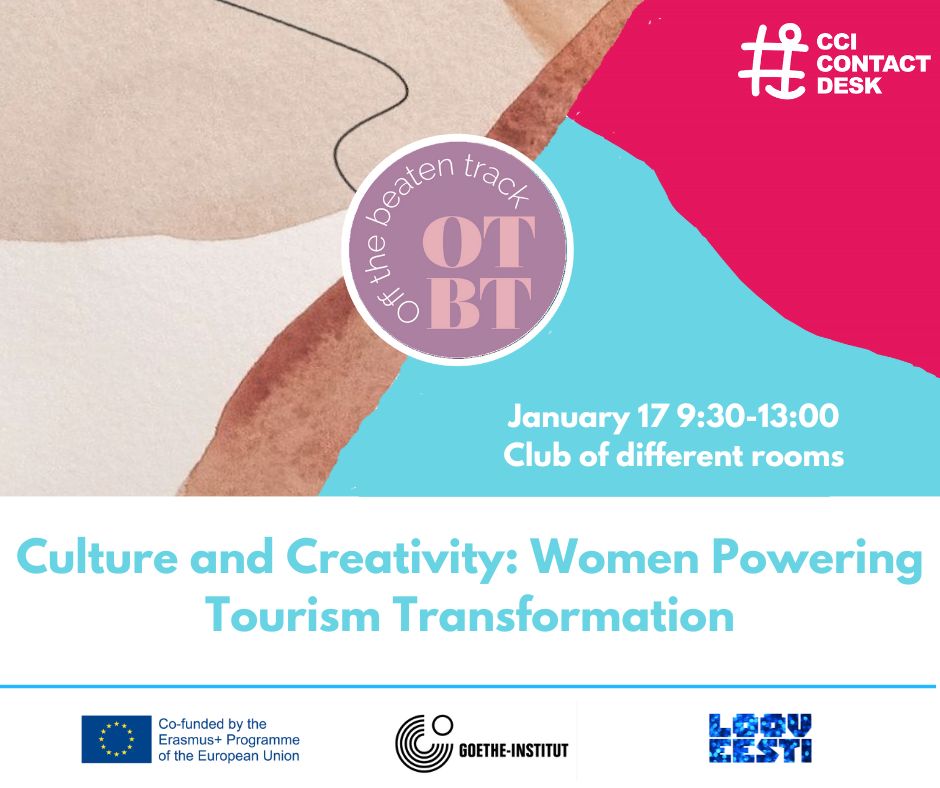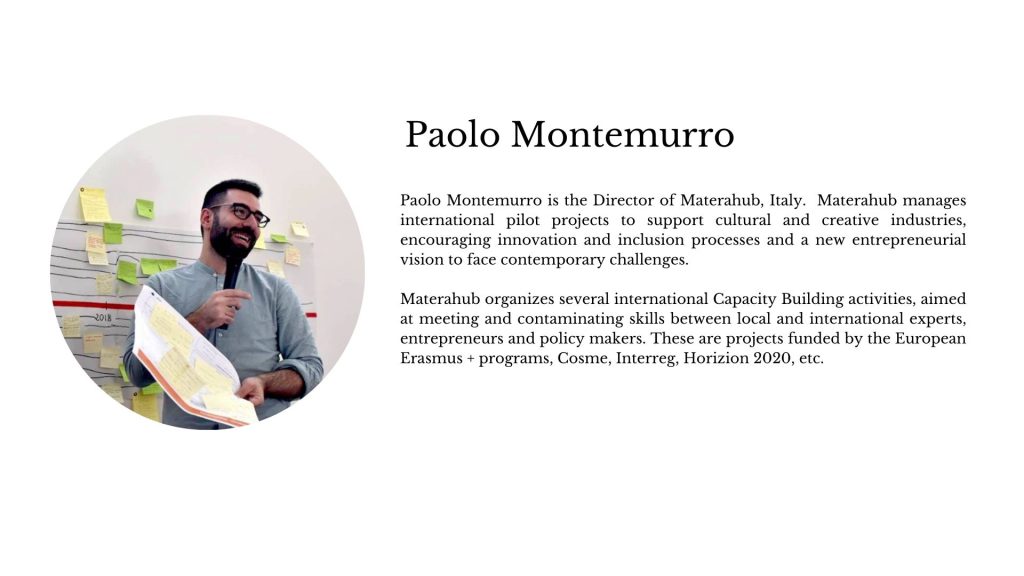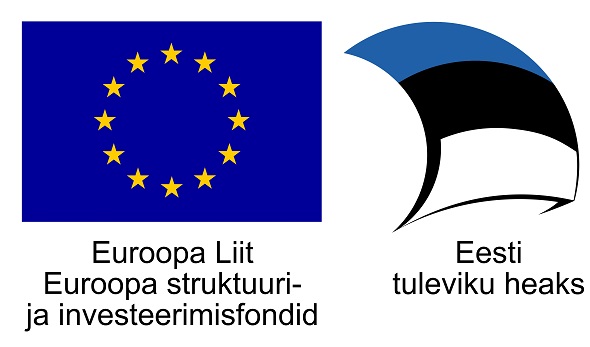“Culture and Creativity: Women Powering Tourism Transformation”
- The final conference of the Erasmus+ project – „Off the Beaten Track“. The project aim was tourism and CCI sector women entrepreneurs’ soft skills development.
- The main focus of the conference will revolve around sustainable cultural tourism, the essential skills required to become an inspiring leader, and the art of building networks.
- European Culture Capital year visibly increases the number of tourists coming to and participating in the program events. In addition, other attractions will visited, and there will be a significant increase in the use of tourism services (accommodation, catering, transport). In other words, the whole economy benefits significantly. But how can this level be sustained once the year of the Capital of Culture is over?

AGENDA
Wednesday, 17. January at Erinevate Tubade Klubi
“Culture and Creativity: Women Powering Tourism
Transformation”
9:15 Registration and welcome coffee
9:30 – 9:45 Opening remarks and introductions
9:45 – 10:15 Year to remember – Tartu 2024 EU Capital of Culture – Erni Kask, International Relations Manager at European Capital of Culture Tartu 2024
10:15-10:45 How the Culture Capitals be sustainable after the ECOC year? Paolo Montemurro, Materahub (ECOC 2019)
10:45 – 11:10 “A Green and Caring World!” Green Entrepreneurship programme for women Ester Eomois, BPW Estonia, Head of Project Partnerships
11:10 -11.30 Coffee break
11:30 – 12:10 A panel discussion will focus on the major outcomes that OTBT achieved are powering women working in tourism and CCSs or interested in making a career in these fields, providing them the learning opportunities, testing out business ideas and networking. ( “Off the Beaten Track” project partners and entrepreneurs, OTBT program participants: Kristel Peikel and Anni Vahter sharing best practices).
12:10 – 12:40 Panel discussion with Creative Ports partners “Building strong partnerships!” The Cultural and Creative Industries Contact Desk is recalling the successful EU project “Creative Ports” and discussing its significance with its partners. The project highlighted the importance of networks and emphasized the need to provide support to the cultural and creative sector in the Baltic Sea Region. But where are we now, and where do we go from here?
Marta Ciesielska – the Westpomeranian Region
Marcus Hagemann – ARS Baltica
Nele Plutus – Tallinn Creative Incubator
12:40 – 12:50 – Conclusion








